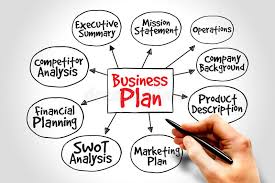What is business planning, and why should business owners care?
 What is business planning, and why should business owners care?
What is business planning, and why should business owners care?
The essential players in a firm sit down and develop all the objectives, plans, and courses of action they anticipate to assure the business’s survival, success, and expansion during business planning.
What is business planning?
The process of business planning is used by an organization’s leaders to choose the optimal growth strategy and record their strategy for success. Business planning entails assessing the company’s internal strengths and weaknesses, increasing productivity, determining how it will compete with competing companies in the future, and establishing benchmarks for development so they can be monitored.
A new company strategy must go through a thorough process with several stages, some of which may overlap. Business planning for startups, small enterprises, and established firms is the same whether you are drafting your plan from scratch, using a straightforward business plan template, or working with an expert business plan consultant or writer.
The business planning process
The current company planning process consists of six parts, which we shall outline individually so that you may comprehend them.
- Do Your Research
The first step in the process is to conduct in-depth research into the market, industry, target market, client base, rivals, and startup costs. You might ponder the following issues:
- What are your company’s objectives?
- How is your company doing right now?
- What are the most recent business trends?
- What are your rivals doing?
Numerous sources are required, ranging from databases and articles to in-person interviews with other business owners, potential clients, or subject-matter experts. To properly credit sources in your business plan, the material obtained during this process must be meticulously documented and structured.
You may also wish to do a SWOT analysis to determine your company’s strengths, weaknesses, opportunities, and potential dangers. This will help you create plans that will showcase your competitive advantage.
- Strategize
You will now use the study to choose the best approach for your company. You can create brand-new strategies or improve ones that have already been tried and true in the market. Pulling the industry’s best practices is a foundation, but you should then build on the many initiatives that concentrate on your competitive advantage.
Creating a future vision for the business may be a part of this step of the planning process, which can be done by conducting in-depth client interviews and learning about the drivers behind their purchasing decisions for relevant products and services. Examine the choices you made for a suitable marketing strategy, the operational procedures you used to carry it out, and the human resources needed for the first five years of the business.
- Calculate Your Financial Forecast
Each of the actions you pick for your approach has a price tag and, ideally, generates some income. By determining if you can anticipate revenues to cover all costs and allow room for long-term profit, you can sketch out the financial scenario. Start by entering your financial projections and startup costs into a financial model that can generate a first-year cash flow statement for you. This will provide you with the clearest idea of the amount of cash you’ll need on hand to fund your early operations.
The information about a company’s operations and performance, including its costs and earnings by accounting period, is provided by a complete set of financial statements (quarterly or year-to-date). The company’s present financial condition, including its assets and liabilities, is also depicted in the financial statements. This is one of the most important components of any business plan since it gives a clear overview of how a firm manages its finances or progresses from initial investment to profitability.
- Draft Your Plan
It’s time to develop the narrative for each section of your company plan now that the financials are largely in order and a strategy has been chosen. The actual drafting should be quite simple, given the background work you’ve already done. This is the moment to enlist the assistance of a skilled business plan writer who can finish the plan from this point if you struggle to produce persuading prose.
- Revise & Proofread
Reread the entire document to check for any concepts or language that might be unclear, redundant, or unrelated to the points you are making. To improve the plan, you might wish to consult with other management team members in your organization who are knowledgeable about the business’s operations or marketing strategy.
Last but not least, thoroughly proofread for spelling, grammar, and formatting. Ask for support from others to serve as extra pairs of eyes. After working on the plan for a while, you could feel burned out and need a break to look at it again with fresh eyes.
- Business Plan Presentation
The business plan’s presentation should clearly highlight the essential ideas listed above and include any other information that may be useful to potential investors, such as financial data, resumes of key workers, or examples of marketing materials. Giving a report on previous sales or financial performance and what the company did to turn things around can also be helpful.
Why should business owners care about business planning?
- To help you with critical decisions.
The main benefit of a business strategy is that it aids in decision-making. Making decisions and handling crises is a constant practice in entrepreneurship. Small firms sometimes lack the resources to sit down and carefully weigh all the implications of a particular choice. A company plan can help with that.
Making a business plan enables you to decide in advance on some of the most important company decisions. A thorough business plan requires you to sit down and consider important aspects of your enterprise before you launch, such as your marketing approach and the products you’ll sell. You already answer many difficult questions. And contemplating your fundamental strategies in great detail can also aid in your understanding of how decisions will affect your overall approach.
- To prove the viability of the business
Passion is the driving force behind many enterprises, but it’s not a very reliable indicator of success. The most crucial stage between notion and reality is probably planning out exactly how you’re going to turn that vision into a prosperous business. You can use business plans to confirm whether your big idea makes good business sense.
- To set better objectives and benchmarks
Without a company plan, goals can take on an arbitrary nature with little rhyme or reason. The intentionality and significance of such benchmarks can be increased with the use of a company plan. Additionally, they can assist you in staying on track with your long-term goals and plan and gain an understanding of how it is or is not working out over time.
- To communicate objectives and benchmarks
You can’t always make every choice yourself, whether you’re in charge of a staff of two or 100. Consider the business strategy as a stand-in teacher who is there to field inquiries whenever necessary. Inform your team that if they have any questions and can’t obtain a response from you directly, they can always refer to the business plan to determine what to do next.
Sharing your business strategy with your team members also ensures that everyone is on the same page with regard to what you’re doing, why you’re doing it, and how to achieve your long-term goals.
 What is business planning, and why should business owners care?
What is business planning, and why should business owners care?
Read Also: Top 7 predictions to position entrepreneurs for advantage in 2023
- To provide a guide for service providers
Small businesses frequently use consultants, contractors, and other experts to help them with activities like marketing, bookkeeping, legal support, and consulting. Assuring that everyone is on the same page, and having a business plan in place makes it simple to share pertinent sections with people who support the organization.
- To secure financing
Did you know that having a business plan increases your chances of receiving funding by 2.5 times? You will probably require a business plan if you intend to pitch to venture capitalists, borrow money from a bank, or consider selling your firm in the future. After all, anyone interested in investing in your business will want to know that it is in capable hands and that it will be profitable in the long run. The best way to demonstrate this is through business plans, which are frequently necessary for anyone looking for outside funding.
Hope you enjoy this article?
Share your thoughts in the comment session.
Contact us today for your business consultancy and business advisory services. We can help you fine-tune your idea, structure your business, market your business, train your staff, consult on your retirement plan, coach you for financial success. We also write a business plan and help with fundraising strategies and Grant applications. We can help you start, grow, and expand your business.
We help institutions and organizations write concepts, implement Business plans, and train on business Plan writing in Nigeria.
We can help you write a detailed, bankable and comprehensive business plan for your business idea.
Call any of our business plan consultants on 08105636015, 08076359735, and 08113205312.
Or send a WhatsApp message or email us either at dayohub@gmail.com or info@dayoadetiloye.com.
Related